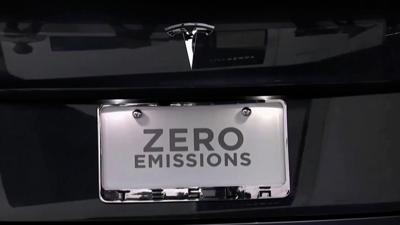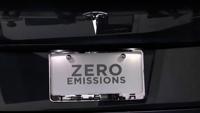DOVER, Del.- Delaware has been developing an electric vehicle infrastructure plan, but now some lawmakers are asking the state to re-think the big idea.
Last March, Gov. John Carney directed Delaware's Department of Natural Resources and Environmental Control to amend the state code to adopt California's Advance Clean Car II (ACC II) program.
The program would gradually ramp up the percentage of new electric cars being sold, starting at 43 percent in 2027, reaching 100 percent by 2035. This would essentially eliminate the option to purchase a gas-powered car 12 years down the road.
State House Rep. Rich Collins (R-Dist. 41) calls this "possibly the most consequential government action that's ever been taken," saying he doesn't believe most Delawareans are aware of what could be happening.
A DNREC spokesperson made a point to clarify that this program would not penalize anyone who already owns a gas-powered car, but is meant to make more zero emission vehicles (ZEVs) available at dealerships for people who want to buy them.
Rep. Collins says his concern is "the government telling you that you have no choice, especially right now when we are having tremendous issues with inflation."
Mr. Collins is not convinced that people will even be able to afford electric cars.
"People will be forced to keep their older, gasoline cars on the road far longer than they would otherwise want to," he said. "Too many, especially of our younger people, are having some struggles economically and it's going to be very difficult to find that's their only choice in just a few years."
When Gov. Carney announced that Delaware would join 13 other states in adopting California's ZEV regulations last March, he highlighted the state's role in the U.S. Climate Alliance.
"In 2017, we signed on to the U.S. Climate Alliance, committing to reduce our carbon emissions by at least 26 percent by 2025. Adopting ZEV regulations will help us make progress on those goals, as well as the other goals outlined in Delaware’s Climate Action Plan," said Gov. Carney.
Rep. Collins suggests the General Assembly be given a say in the process.
"The mandate is turning the judgement, of what we need to do, over to a small handful of people who were not elected and we have no idea what their level of expertise or exactly what their motive is," he said. "That's not the way we do things in America."
So far, DNREC has held 5 public workshops regarding the zero emission regulations. They plan to hold a public hearing sometime in the near future.


